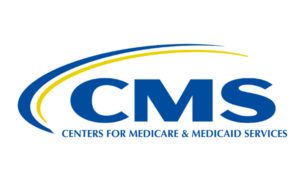 CMS intends to kill the Medicare Coverage of Innovative Technology (MCIT) program that would have accelerated government payments for medical devices designated by the FDA as breakthroughs.
CMS intends to kill the Medicare Coverage of Innovative Technology (MCIT) program that would have accelerated government payments for medical devices designated by the FDA as breakthroughs.
CMS (the U.S. Centers for Medicare & Medicaid Services) disclosed its proposal in the Federal Registrar on Wednesday — three months before the rule was set to take effect on Dec. 15 — saying the rule “is not in the best interest of Medicare beneficiaries.”
CMS created the MCIT pathway in the last days of the Trump Administration, and it was among a host of regulations the Biden Administration immediately put on hold for further consideration.
“While the rule tried to address stakeholder concerns about accelerating coverage of new devices, significant concerns persist about the availability of clinical evidence on Breakthrough Devices when used in the Medicare population as well as the benefit or risks of these devices with respect to use in the Medicare population upon receipt of coverage,” the agency said in its notice.
Medicare patients generally have more comorbidities than patients typically enrolled in early clinical trials, and they often require additional and higher acuity clinical treatments. CMS said these considerations are often not addressed in the early device development process.
CMS also said it did not want to appear to promote the use of MCIT-covered devices over more appropriate alternatives, warning that “early and unrestricted adoption of devices may have consequences that may not be easy to reverse.”
“CMS expects physicians to consider the available evidence and assess the care needs of each patient when considering the best treatment options,” CMS said. “However, by guaranteeing coverage of devices based solely on breakthrough status and FDA marketing authorization, rather than also taking into account whether the device provides an effective, reasonable and necessary treatment for Medicare patients, there may be an incentive for physicians to use a device that has coverage under the MCIT pathway rather than a device that is not covered under the MCIT pathway but is nonetheless covered under an existing coverage pathway and that may be more beneficial to patients. This early adoption by physicians could potentially lead to these devices being prematurely viewed as the standard of care, which could adversely impact beneficiaries if there is another item or service available to treat the patient that has an evidence-base to suggest that it may lead to better health outcomes. “
CMS is accepting comments electronically and by mail through Oct. 15.
AdvaMed called repeal of the MCIT program “the wrong decision for countless Medicare patients, and … for American medical innovation.”
“Any Medicare patient and their doctor who has exhausted all existing medical options should have immediate access to FDA-approved breakthrough medical technologies,” the industry association said in a statement. “That’s what this is all about. Doctors and patients should be trusted to make the right medical decision to treat a life-threatening condition. The federal government should incentivize access to these new breakthrough technologies.”
Even if the MCIT rule is repealed, the program could return as law with passage of an updated 21st Century Cures Act. Known as “Cures 2.0,” the bill included the MCIT program when released in draft form this summer; its authors aim to introduce and pass the legislation by the end of 2021, they said yesterday.